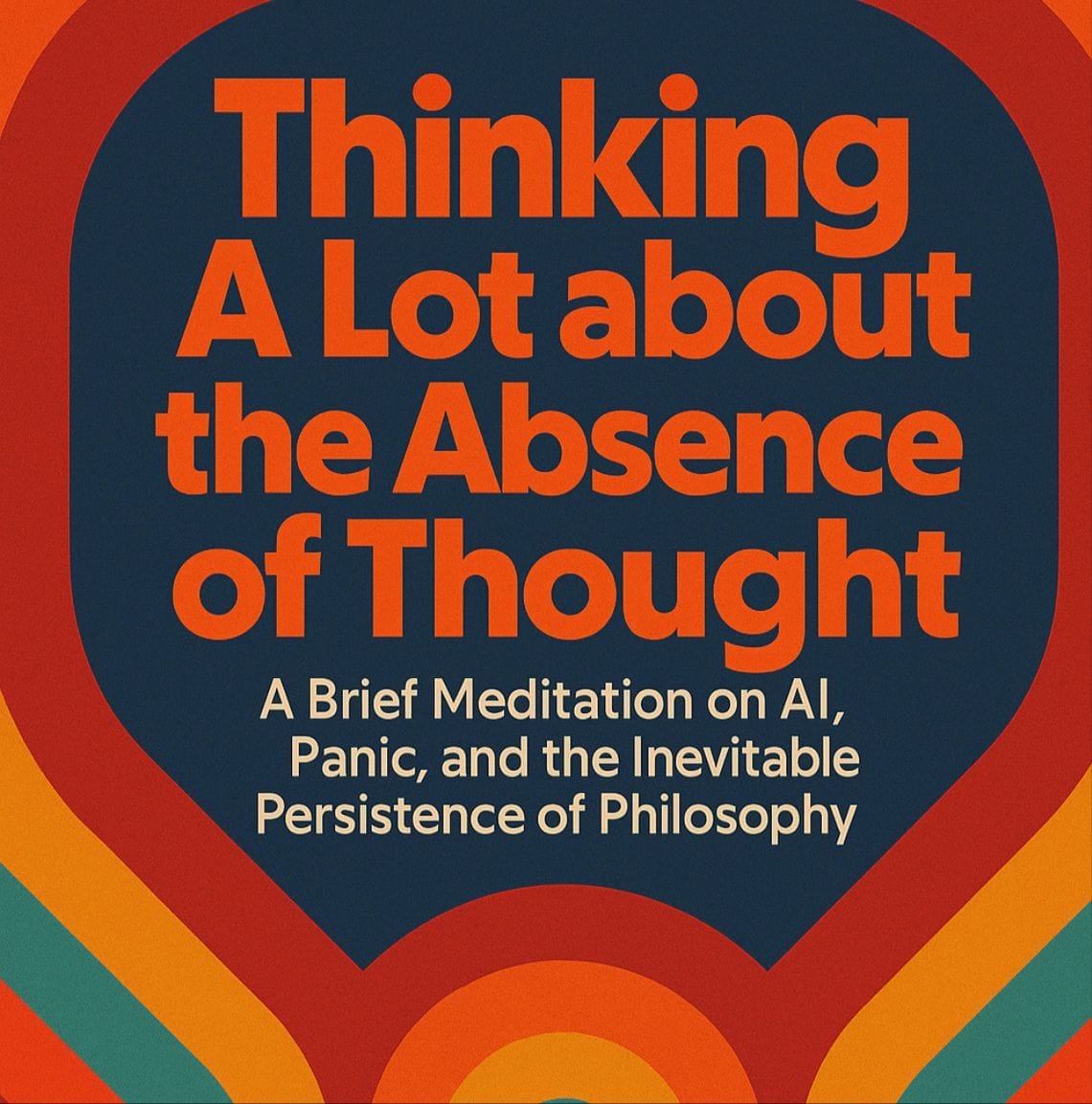Thinking A Lot about the Absence of Thought

A Brief Meditation on AI, Panic, and the Inevitable Persistence of Philosophy
By J. Owen Matson
Lately, there’s been no shortage of hand-wringing over what AI is doing to our minds. Commentators fret about the rise of cognitive passivity, teachers report students outsourcing essays to machines, and an entire cottage industry has sprung up around “prompt engineering”—which appears to mean thinking less about what you want to say and more about how to coax a chatbot into saying something vaguely similar.
The fear is not just that AI will take over jobs, but that it might gently relieve us of the burden of reflection itself. Thinking, once the cornerstone of education and the occasional dinner party, now risks becoming a premium feature. What once required long walks, anxiety, and occasional spiritual crisis can now be simulated in three seconds by a server farm in Iowa.
Still, the funny thing about the supposed death of thinking is how noisy the funeral has been. Artificial intelligence, we’re told, heralds the outsourcing of insight itself—the farewell tour of reflection, now with fewer metaphors and more marketing copy. And yet, amid this supposed collapse, the streets are full of amateur epistemologists, YouTubers quoting Heidegger, and open letters drafted in the rhetorical style of mild panic. It seems thinking is not so much vanishing as throwing a rather loud existential tantrum.
Strangely, this kind of crisis tends to sharpen thought rather than extinguish it. As Cathy Caruth observes, insight often arrives through disruption—less like a eureka moment and more like a delayed reaction to a blow you didn’t fully register at the time. The trauma of disruption lies in witnessing the absence of thought after the fact. We don’t think because everything makes sense; we think because something breaks thinking. Walter Benjamin believed that real understanding came not from smooth experience but from shock—the jolt that cracks the mindless shell of everyday routine, exposing a kind of automatic thoughtlessness. AI has delivered just such a jolt, not by dazzling us with brilliance, but by being shockingly fluent.Of course, philosophers have been gnawing on this for centuries. From Plato’s fears about writing corrupting memory to Derrida’s dismantling of metaphysical presence, the history of thought has always been haunted by its own absence. For decades, theory has been saying that agency, identity, and authorship may be more complicated than they appear. But no one really listened—until, that is, a chatbot started sounding like your least interesting colleague.
Yes, we’re worried that thinking has been outsourced, but that worry instigates a lot of thinking.
It reminds me of a line from Derrida: Philosophy always replaces itself. In other words, thinking cannot be fully outsourced, because even its absence is generative.
The pedagogical corollary is quietly radical: you don’t teach thinking by enforcing it—you teach it by staging the conditions in which its absence becomes visible, even unbearable.